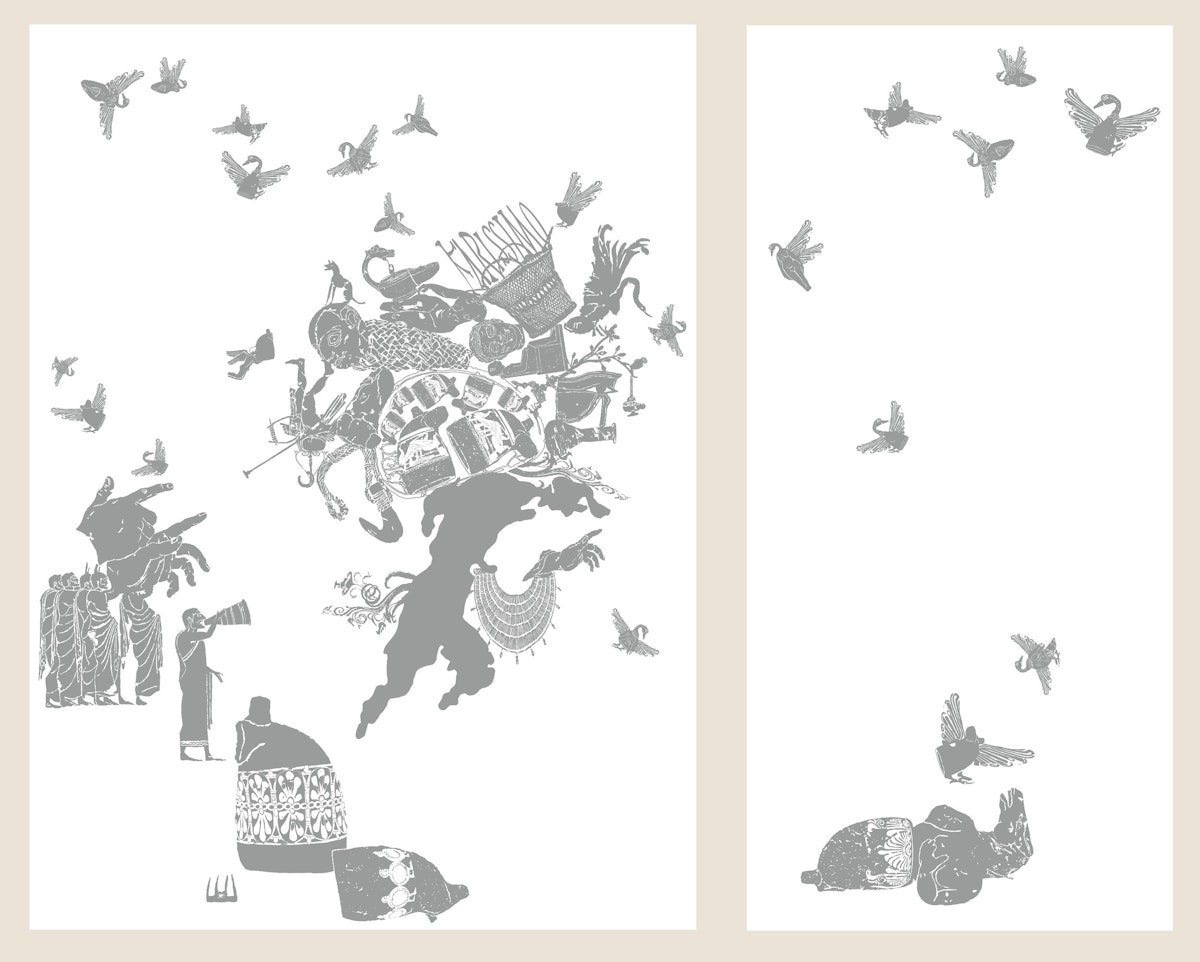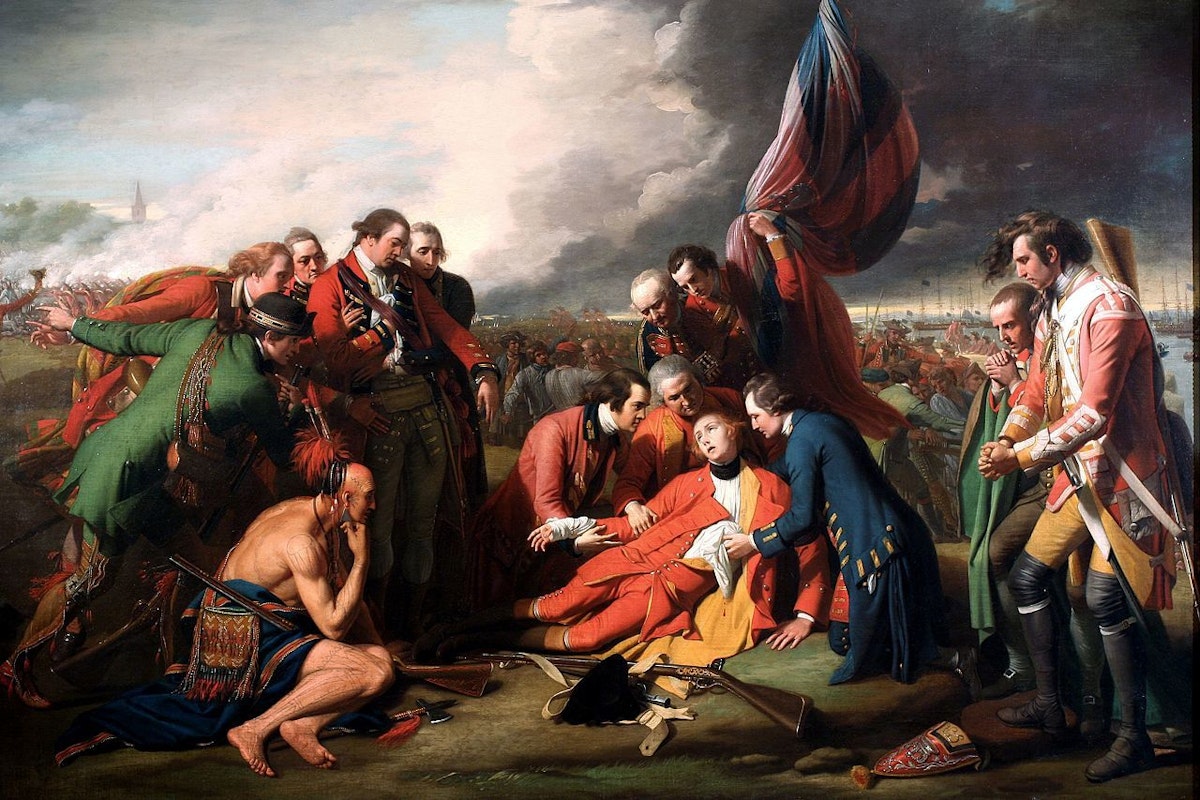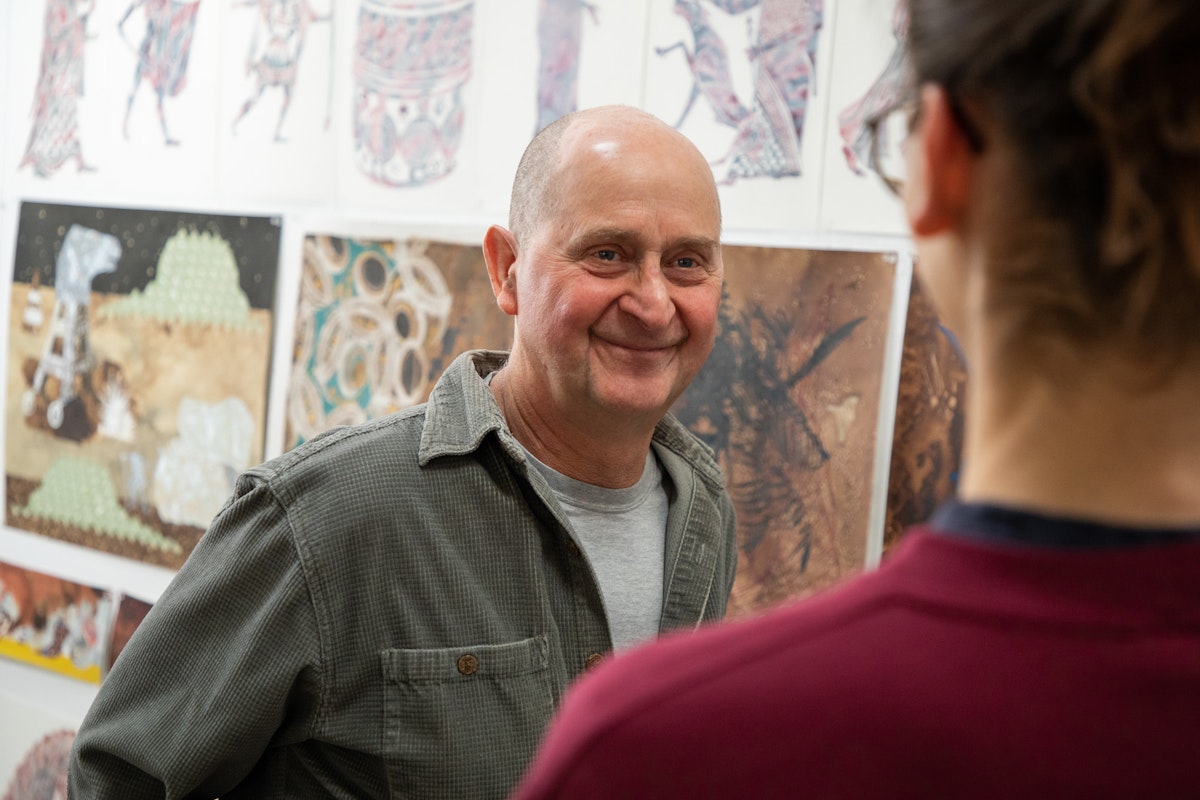Jim Cogswell’s “Plunder” Offers Reflections on Art, Archeology
Jim Cogswell, Arthur F. Thurnau Professor at the Penny W. Stamps School of Art & Design, will be featured in Creative (un)makings: disruptions in art/archaeology, a series of three installations at the Museum of Contemporary Sculpture in Santo Tirso, Portugal, on view March 7-June 21, 2020.
The exhibition invites archaeologists, artists, historians, heritage professionals, and others to explore new territories beyond the traditionally defined boundaries of art and archaeology.
Cogswell's new adhesive vinyl project Plunder will be part of Ineligible, the third and final installation in the Creative (un)makings exhibition. Co-curated by archaeologist Douglass Bailey and sculptor Sara Navarro, the work in this installation is the outcome of a creative prompt to artists, archaeologists, cultural producers, and creators: re-make and re-contextualize "value-less" artifacts unearthed by the 1999 construction of the Transbay Transit Center in San Francisco. This new artistic work aims to stimulate audience thoughts about contemporary political and social issues.

Plunder uses images of archaeological and artistic artifacts from around the globe, with dominant imagery of hands sourced from Noel Halle’s Joseph Interpreting the Dreams of Pharaoh’s Servants (1747) and Benjamin West’s The Death of General Wolfe (1776), both found in the U-M Museum of Art’s collection.
“The hands in this work symbolize the act of making, which is at the core of the exhibition,” Cogswell said. “This is an opportunity to think about what happens to what has been made, and what making might mean in human culture.”

The work also prominently features 19th century ceramic pipe bowls unearthed during excavations for the San Francisco Trans Bay Transit Center, sent to Cogswell by the exhibition organizers. The work will be installed on exit windows of the museum, inviting visitors to imagine the artifacts escaping from the galleries into the world beyond.
“My installation tells a story of displaced people as well as displaced things, of objects exchanged, of cultures looted and destroyed in the movement of peoples through history,” Cogswell said. “The objects we leave behind speak of migration and exile, loss and longing; sagas of trade, conquest, appropriation, and plunder; a gathered plentitude of what it means to be human.”
Drawing parallels between the oceanside location of the San Francisco Trans Bay Transit Center and the museum’s location on the banks of the Ave and Vizela rivers, Cogwell reflects on the influence of waterways on human civilization.
“Ports along the coast lured the Portuguese out to distant corners of the world on voyages of discovery, commerce, and predation that opened an age of European global plunder,” Cogswell said. “Which led, ultimately, to the founding of distant ports such as San Francisco.”
Twenty-seven contributors were invited to participate in the exhibition, representing a variety of fields related to anthropology, archaeology and the arts, from Denmark, France, Israel, Portugal, Spain, Sweden, United Kingdom, and the United States. Other work included will encompass acoustic projects, performance, ceramic, animal bone, mixed media, photography, print, and video. A catalog of the exhibition will be published by the museum.

Support for Plunder is provided by the Kelsey Museum of Archaeology, the Department of Anthropology, and the Museum of Anthropological Archaeology at the University of Michigan.
Learn more about Creative (un)makings: disruptions in art/archaeology and the work of Professor Jim Cogswell.